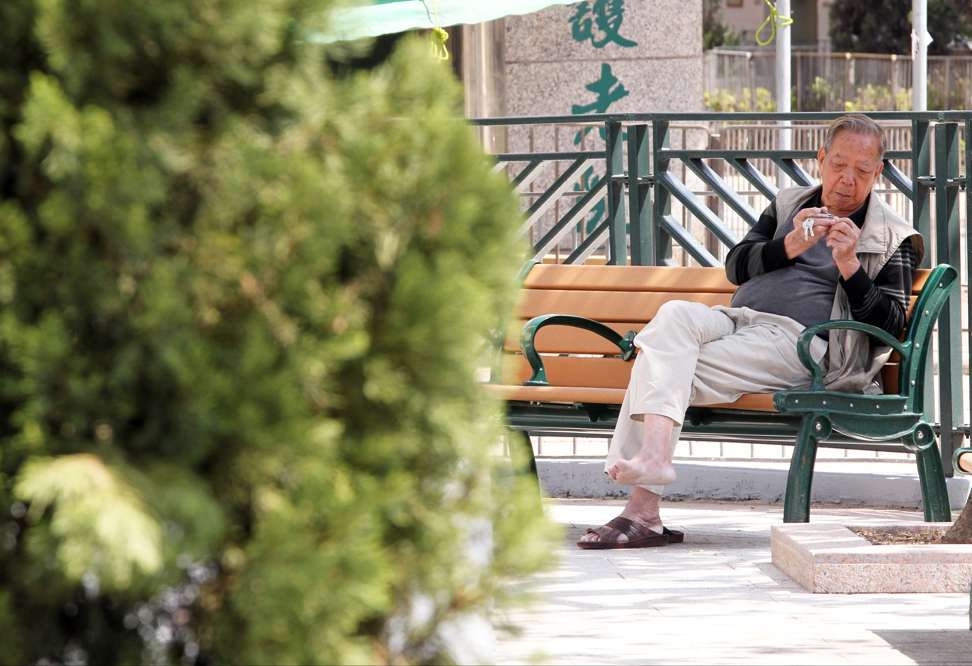
Scholar calls for law to protect the elderly in Hong Kong
Ongoing study by the Chinese University’s Centre for Rights and Justice found Hong Kong is lagging behind other regions when it comes to legal protections for senior citizens

A Chinese University scholar has called for the introduction of a comprehensive law to tackle a host of issues facing the elderly in the city, after a two year study found Hong Kong is falling far behind other regions when it comes to protecting its senior citizens.
Professor Mimi Zou, associate director of the university’s Centre for Rights and Justice, said on Thursday that the city lacked legislation allowing the elderly to make advance medical decisions in end-of-life situations, and protecting the elderly from age-discrimination as well as physical and financial abuse.
“Hong Kong is really doing very badly [in elderly protection],” Zou said. “It has a long way to go.”
Zou said there had been growing concern in the medical field over the lack of advance directive legislation, which allows people to choose their preferred mode of treatment when they are terminally ill, as well as nominate representatives who will ensure that their choices are carried out.
Although the Hospital Authority introduced a guideline on advance directives in 2010, medical workers could still face challenges from family members due to the lack of legal support for these advance decisions, Zou said.
“Legislation can issue a clear legal status and promote community awareness of advance directives,” she said. “It will give the elderly autonomy.”
Zou said elderly had also been forced to retire at a fixed age, employers were reluctant to employ the elderly and retirees only had a limited arrange of jobs which were usually precarious and low-waged to choose from.

She said an anti-age discrimination law is needed to safeguard people’s right to work, regardless of age, and improve the elderly’s quality of life and financial stability. She cited Singapore as an example, which requires employers to offer re-employment to eligible elderly people for five more years after they reach retirement age.
Zou also called for a mandatory reporting system on abuse of the elderly, citing the United States, which criminalised those who failed to report such cases.
Labour Party legislator Fernando Cheung Chiu-hung agreed there should be a comprehensive elderly law covering different areas to protect the rights of senior citizens. But he said it would be difficult for legislators to push such laws through private bills, because the chief executive would be the one to decide whether to accept the bills or not.
“Eventually, we need the government to actively promote the legislation of these protections,” Cheung said.
Medical sector lawmaker Pierre Chan Pui-yin said he did not oppose the legislation of advance directives, but had concerns over whether it would put frontline doctors in a confrontational position when facing strong opposition from the patients’ family members.
The study, which compares elderly care in Hong Kong with 50 other regions, is ongoing at the Centre for Rights and Justice.